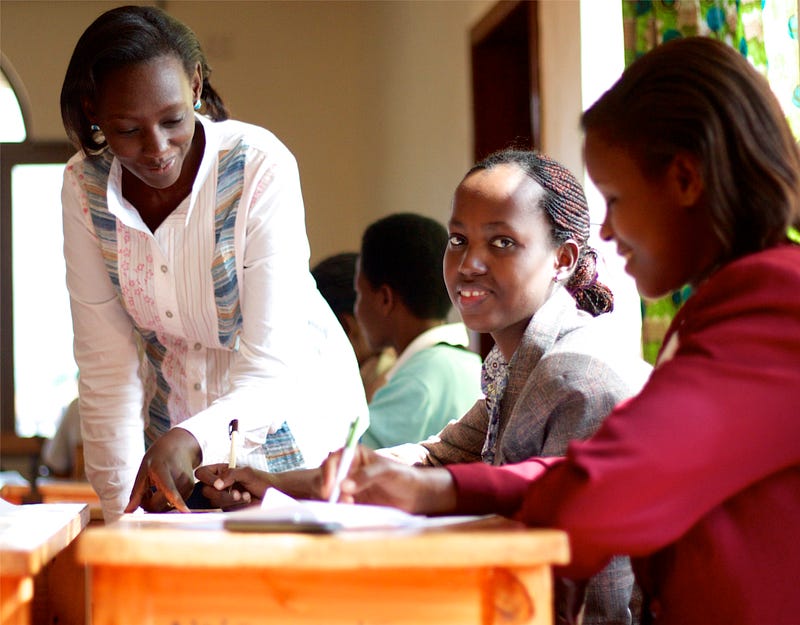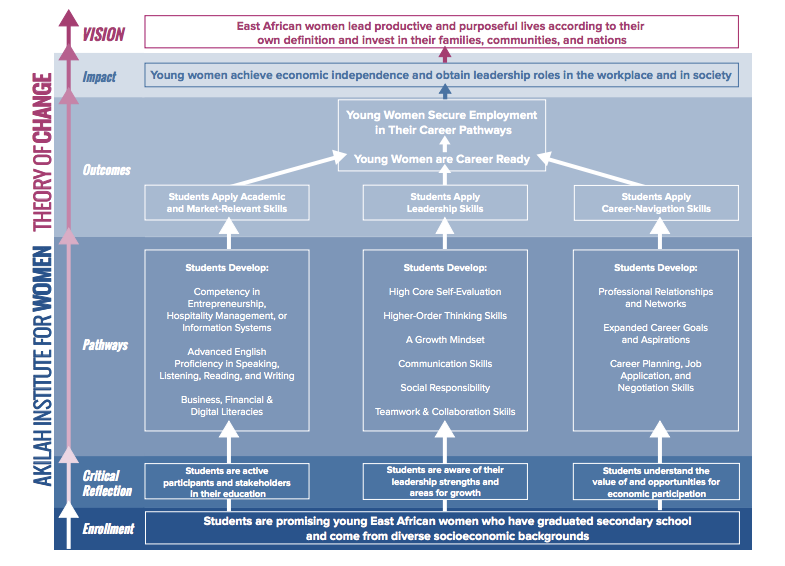10 things to know about Akilah’s Monitoring & Evaluation Program
How do we measure Akilah’s impact on young women in Rwanda and their futures?

Akilah officially introduced our Monitoring & Evaluation Program (M&E) in 2015, when we hired a full-time M&E specialist to join our Kigali office.
The main purpose of our M&E Program is to measure our impact on young women in Rwanda and their communities, and to ensure that we live up to our goals of delivering quality education, tailored internships and high employment rates to our students.
We do a variety of evaluations of our students and programs throughout the year, mainly through interviews, surveys, questionnaires and focus groups — all based on the latest research methods in the field.
The core of our M&E program is our Theory of Change, outlining our Vision of enhancing East African Women to lead productive and purposeful lives according to their own definition and invest in their families, communities, and nations — and the steps to reach that vision.
We focus on measuring three main elements of Akilah’s program: academic & market relevant skills, leadership skills, and career navigation skills among our students.
We look at each element by measuring two levels: Output and Outcome. Output looks at the skills and competencies our students acquire through our program. Outcomes measure what we expect students to do with the skills we help them develop.
We have developed several M&E reports and products including baseline surveys and end-line surveys,showcasing the change our students go through from enrollment to graduation. We are currently conducting our first formal alumnae evaluation, which will give us more data on what life and career opportunities look life after graduating Akilah.
Through our M&E we now know that that 88% of our graduates move directly into jobs within six months of graduating — and earn, on average, 12 times more than the national median income.
Our M&E system has taught us about our student body: 55% come from rural areas, and 78% of our students are the first generation in their family to complete higher education.
We can use the results from our evaluations to continuously develop our curriculum to fit private sector needs and build market-relevant skills and competencies, which will make our students more successful in their careers and in society. This enables us to widen our reach, raise more support and potentially open more campuses and enroll more students across East Africa.

Akilah Institute’s Theory of Change
